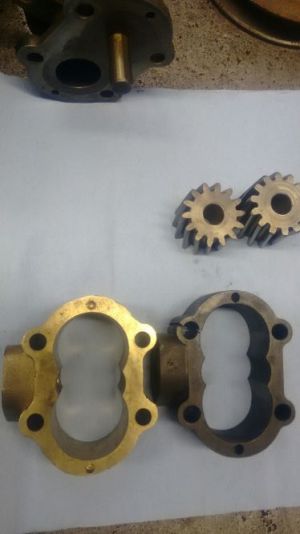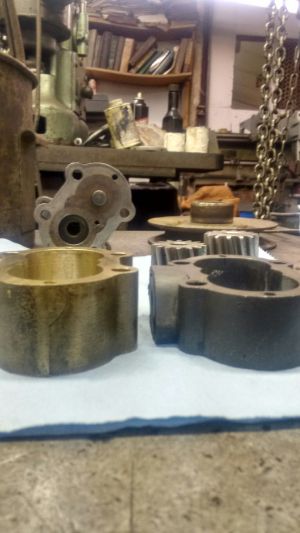- Home
- About Us
- Join/Renew
- Member Benefits
- Member Pages
- Log In
- Help
- Museum Store
Ahh Greg, the dreaded CRS disease. Happens to everyone sooner or later…
Bill,
How about posting that on the Web site?
Bob
John Cislak has some available, not sure which year you are looking for. He had one for my ’29.
Eric,
Welcome to PAS!
When you get the car, please do NOT try to fire up the radio without at least putting a fuse (probably 20 amp will do, although those with a radio should say if it is less) in the power feed to the radio. If the car has been sitting quite a while, the electrolytic capacitors are likely dried out, and shorted. You should send it to one of the guys who restore radios to get it checked out.
Please send pics of the car, and especially the engine compartment, when available.
Bob
Or a member of this club or another reputable auto club.
Thanks, Ed.
Assuming we all have lots of time in this frigid weather, would it make sense to sit these universal joints in a bucket of kerosene for a week or so to soften the old grease, then use air and then a power grease gun?
Well said, Dean. David as well. Try the Packard web site, it is a bit cludgy as well if you haven’t spent a lot of time pouring over it. I would like to add to Dean’s desires would be the ability to add pictures (preferably multiples as necessary) to a posting on a thread. It would also be great to be able to have a section for technical data (the Packard site is good for this) such as wiring schematics, Greg Long (and many others) how to explanations, and other pertinent technical data that is very difficult to find for a 90 year old car. I realize this takes a lot more storage than we currently have, but this is a small price to pay for the ability to find this valuable information.
Anyone who has had a catastrophe at home, such as a fire, flood or hurricane would appreciate having a backup for important stuff, like pictures of a car that was destroyed. Detailed pictures are also valuable for members to use when re-assembling a car under restoration.
Thanks. I was thinking of the body as well, aluminum would not fare well for the gears. After checking back on the gears, they appear to be steel, not brass. I was more worried about electrolysis between the various metals.
Thanks, Craig!
Greg, I will also jog your memory this afternoon. Have two family members in the hospital, so I need a diversion.
In thinking about making these, we figured it would be OK do use a decent grade of aluminum. Any thoughts on this, especially considering there would be at least three types of metal (cast and brass gears) in the immediate vicinity?
Another angle showing the size issue.

Forgot the picture…

If you ned a rebuild, go to Fort Wayne clutch.
Gentlemen,
Has anyone tried a WIX brand 51100 model cartridge to see if this will fit the original bypass filter system for a ’29? It seems to have the correct interior diameter and is close, but just a bit shorter than the AC brand P115 that came with my engine.
Bob
Doc,
I have the same issue. I agree with Craig, we need to find a filter assembly that has the same attaching scheme as the trumpet. The good thing is we have room between the carb and the fuel pump. As for the breather tube, it would be nice to replicate a 60’s vintage PCV valve setup, but we don’t have a vacuum port on the carb. Short of that, it would make sense to put a small filter on the end of the breather tube and let it hang in free air.
I do remember John Cislak said he was working on something for the ’29’s and ’30’s to provide some type of air filtration. Ed, do you have an update?
David Coco, Greg, et al, any thoughts?
There were a number of published “manuals” in the early days, including Motors Handbooks, Dyke’s Encyclopedia, and Lester Steele, among others. You can also find a lot of information in the SAE (Society of Automotive Engineers) transactions. Fred Clymer put out an antique car handbook for cars 1927 and prior. To a lesser degree, the Holland Interchange manuals are helpful.
None of these were for a specific marque, but all have some value to a point, as many manufacturers used parts from independent manufacturers, like Delco, Bendix, etc.
There is also a McLure’s Magazine, giving some specs and pricing for cars. The 1917-18 book shows the model 66-A-4 cost as much as $8000 from the factory! In addition to the standard specs, the Pierce also included windshield, speedometer, autometer, clock and demountable rims.
Luke,
You really have your priorities right! Is ten enough?
As always, Greg is right. They do have an oil filter. I was talking about the air filter. Thanks for the pics on the oil filter. Mine has one, with an AC brand P-115 cartridge filter. I found a WIX filter that was close, but doesn’t have the same diameter in the middle. The guys who sell farm equipment parts think they might be able to match something up.
Greg, I sent you an email a while ago on your earthlink account, probably didn’t go through. Should I resend it to the gmail account?
Bob
We are getting a downpour in DC. It is finally clearing the 10 inches of snow we got last weekend. David Coco is 70 miles west, and likely buried in snow and ice.
Bring on Spring!
Craig,
Mine is the same way, with no filter at all. California cars were built with extra ventilation in the 60’s. Perhaps we can start there. I thought John Cislak was working on a filter system for the early 8’s.
It has a heater, much like the one in my ’29. Milt, before you sell it, could you post a few pics of the hose configuration and passenger side firewall in the engine compartment? I can’t see any in the engine pics on eBay.
